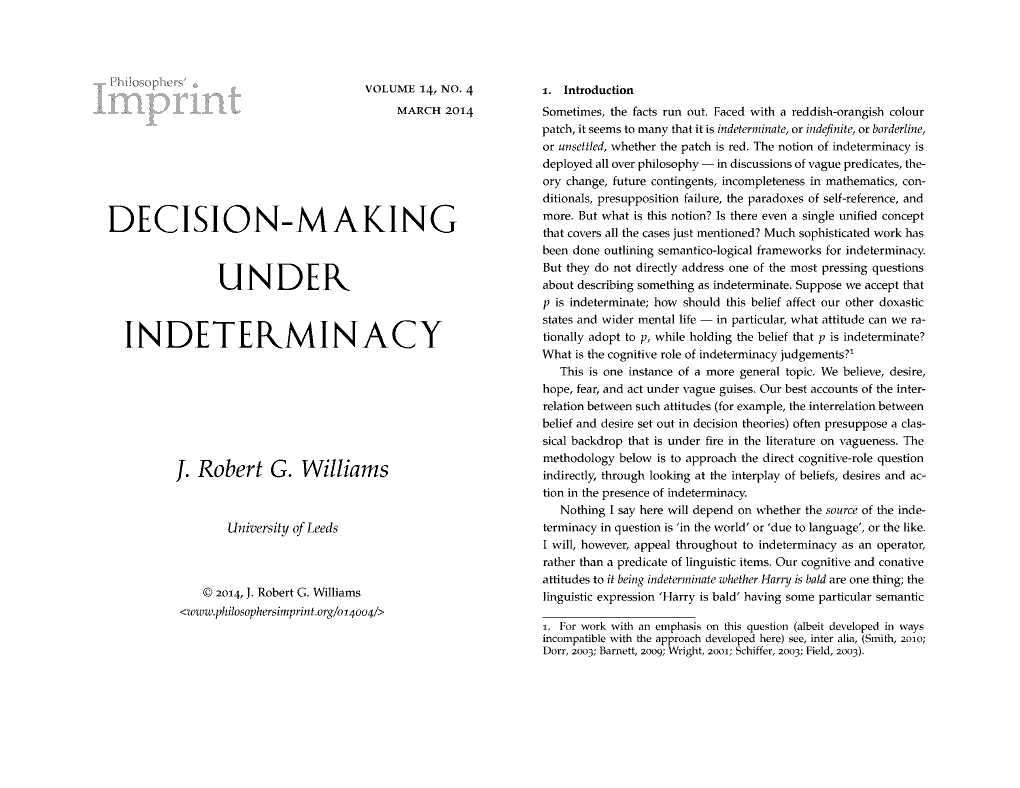Decision-Making Under Indeterminacy
Skip other details (including permanent urls, DOI, citation information): This work is licensed under a Creative Commons Attribution-NonCommercial-NoDerivatives 3.0 License. Please contact mpub-help@umich.edu to use this work in a way not covered by the license.
For more information, read Michigan Publishing's access and usage policy.
Abstract
Decisions are made under uncertainty when there are distinct outcomes of a given action, and one is uncertain to which the act will lead. Decisions are made under indeterminacy when there are distinct outcomes of a given action, and it is indeterminate to which the act will lead. This paper develops a theory of (synchronic and diachronic) decision-making under indeterminacy that portrays the rational response to such situations as inconstant. Rational agents have to capriciously and randomly choose how to resolve the indeterminacy relevant to a given choice-situation, but such capricious choices once made constrain how they will choose in the future. The account is illustrated by the case of self-interested action in situations where it is indeterminate whether you yourself will survive to benefit or suffer the consequences. The conclusion emphasizes some distinctive anti-hedging predictions of the account.



